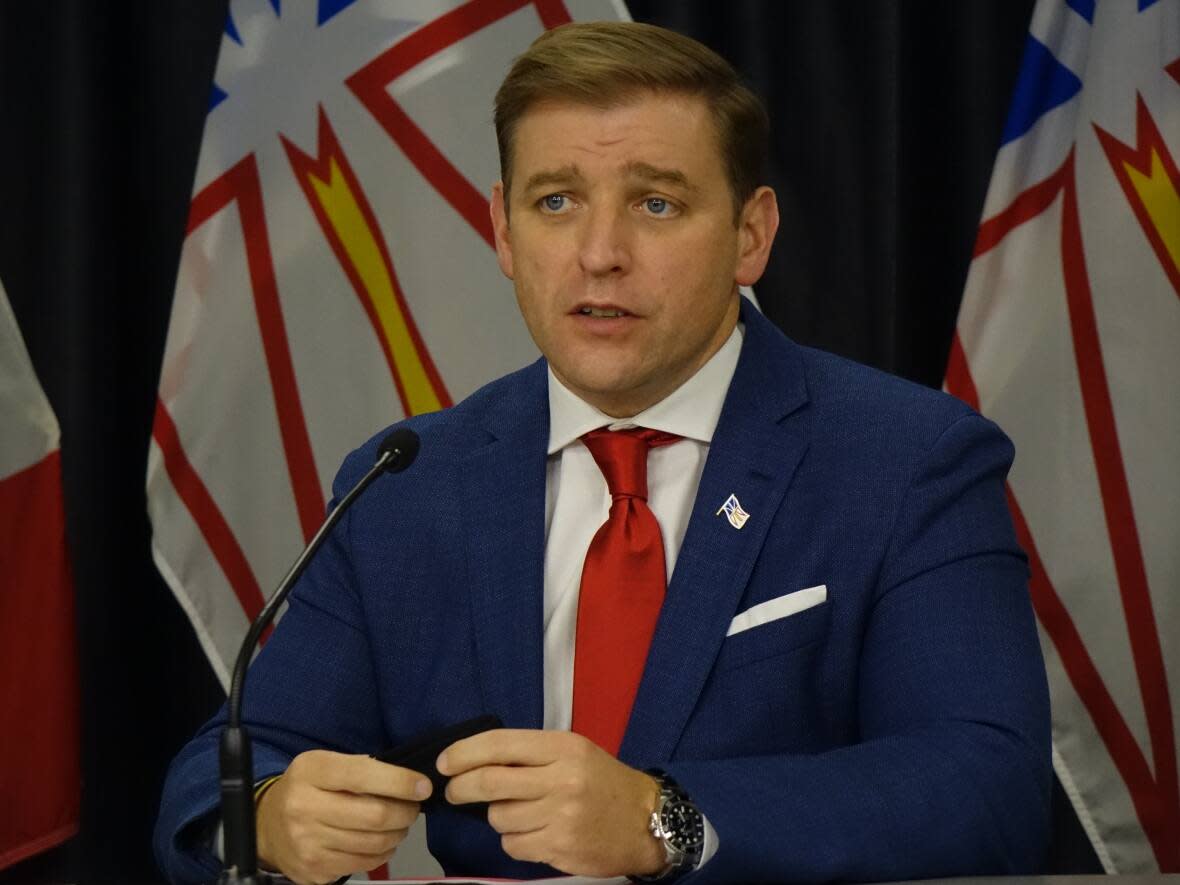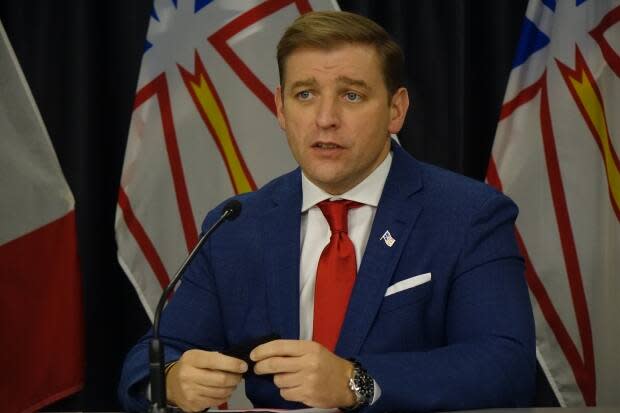Premier Andrew Furey looks ahead to the developments and challenges facing N.L. in 2023


Newfoundland and Labrador Premier Andrew Furey says a long-term royalty regime is something that will be important to the province's green energy sector as wind development, while in its early stages, starts to take shape.
In a sit-down interview with CBC News on Wednesday to discuss the year ahead for the province, Furey said the government needs to consider the lessons of the 1969 Churchill Falls agreement, which locked N.L. into selling electricity to Quebec for $2 per megawatt-hour until 2041.
"I think we also use lessons from the oil industry, where we recognize that royalties and royalty regimes are a great way to exercise value of our resources."
The province is looking toward a future with less reliance on oil revenue to bolster its finances, while Canada has plans to go to net-zero emissions by 2050.
N.L. has opened the door for wind energy developers over the last year, with one project in its early stages on Newfoundland's west coast — though still undergoing an environmental assessment process — and millions of hectares of Crown land up for grabs to other perspective investors.
Canada and Germany also formed what Prime Minister Justin Trudeau called a "hydrogen alliance" in August. Germany is staring down an energy crisis caused by Russia's invasion of Ukraine, along with heavy cuts to its gas exports.
Furey said Newfoundland and Labrador needs to make sure it's getting the best value for its resources, which includes wind, while also developing the new industry.
"In developing a fiscal framework that companies can adhere to and government can put forward for them to subscribe to, we will have more certainty," Furey said.
"But we also have to build in there the ability to renegotiate along the way so that we don't get stuck with a Churchill Falls, if you will. The main issue with that deal was not just the length of the deal but the fact that it was a fixed cost. I think that's what everyone is very cognizant of when looking at a new industry here."
WATCH | Premier Andrew Furey sits down with the CBC's Peter Cowan to discuss the year ahead:
The groundwork has to be laid right now, Furey said, also pointing to the need for a support pipeline for the industry.
He said he wants to partner with the federal government to ensure there are educational opportunities beyond 2050.
"That seed has to be planted today. When I was going through high school in the '90s no one came in to me and said oil and gas was a potential [job]. It was brand new and no one knew what the future of the oil and gas industry held," he said.
"Focus, by educational institutions like MUN and CNA, and enhanced by the federal government and ACOA and others, all of a sudden there was a pipeline of support, of educational opportunities, of training opportunities to support the industry. I would love to see that happening here in Newfoundland and Labrador with respect to renewables as well."
In Wednesday's interview Furey also discussed the province's "broken" health-care system.
He said the system need reinvention, creativity, modernization and revision.
The premier also touched on the cost of living and inflation challenges.
Watch the full interview by clicking on the video above.


